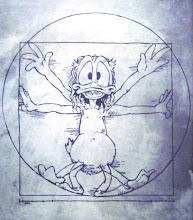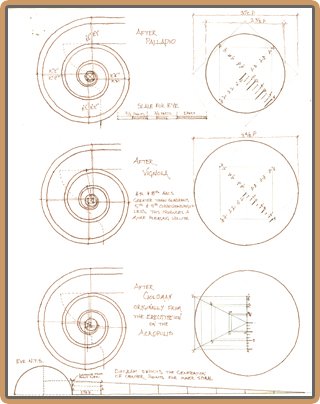On Friday, Patrick Reilly over at InsideCatholic.com published a synopsis of the Holy Father's lecture to Catholic educators given the day before.
Far be it from me to nag about someone's blogging style, but this guy completely missed the point while being cutesy on the issue. Before I mention my own positive thoughts on the lecture, I want to mention the basic issues I have with the article, as it bears on how Catholic educators and administrators ought to be heeding the Holy Father's admonitions.
A basic theme in the lecture was the proper alignment or balance between 'knowing' and 'doing', especially in light of the proper understanding of the relationship between faith and reason. Mr. Reilly obviously didn't really get this, although his words would on the surface seems to show that he did. Mr. Reilly, like the liberal educators he rails against, is only focusing on what is knowable about the Holy Father's positions, rather than taking such points to heart and extrapolating what is and ought to be doable or done.
Mr. Reilly, his style seems to indicate, sat down with a preordained laundry list of complaints (all of which I share, mind you) about many Catholic educational institutions, and proceeded to find possible text excerpts from the lecture which seemed to respond to the individual complaints. In so doing, he missed the fundamental point the Holy Father was trying to make: Of all the things you so-called Catholic educators are screwing up, the worst is that you don't pay mind to the will of the student. But the Holy Father's words are more eloquent: "While we have sought diligently to engage the intellect of our young, perhaps we have neglected the will."
It is in our activity, our choosing this or that impetus to activity as good or bad, that we live the Christian life. It is the responsibility of the Catholic educator to help the youth understand how to live the Christian life. In that, he will think and know like a Christian.
St. Dominic, whose orderly lineage includes many of the greatest thinkers and educators in the great history of the Church, shows us the way: It was his understanding that Christian activity was more valuable than Christian knowledge that led him, as a student, to sell his preciously annotated books to feed the poor of Palencia. It was this charity that filled St. Dominic's intellectual life. Thus, St. Dominic knew that the Christian lived in a world full of Faith AND Reason. Not Faith OR Reason.
Holy Father Benedict understands this as well. I hope that the Catholic educators of America heed his point: Our youth must be led in the activities of Christian life, and it starts by the educators and administrators themselves first picking up Christ's cross, and living Christ's truths. Then the students will follow and learn to be free.
Monday, April 21, 2008
Subscribe to:
Post Comments (Atom)



2 comments:
Thank you for this very insightful point about the Pope's talk. Let try to restate your point and see if I have seen what you have in mind.
The Pope argues that faith is a way of knowing the truth. However, faith differs from demonstration in that faith requires a movement of the will to cause the intellect to assent to the truth revealed. So if you want students to know these crucial truths, then you have to attend to their will--to the "obedience of faith", as Paul puts it.
Catholic educators (read: I) cannot focus only on spinning the truth more and more persuasively. We cannot appeal only to the intellect. We have to inspire the desire to submit the will, and hence the mind, to God.
And I think you are right that Reilly didn't capture that point.
Exactly, only much better put than I myself could do (or did).
Post a Comment